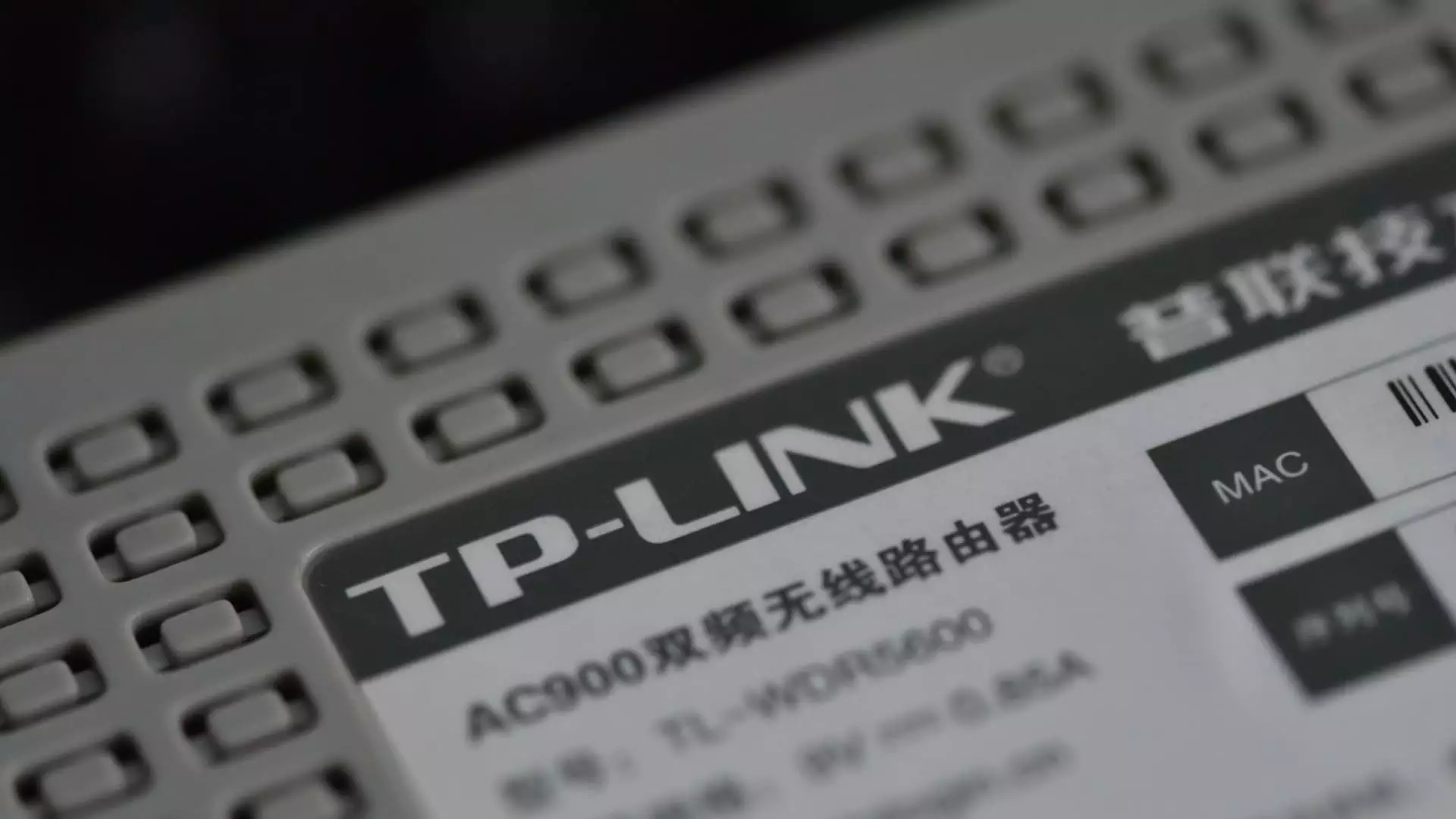In recent months, the scrutiny surrounding technology products with ties to China has intensified, particularly amidst ongoing discussions about TikTok and its potential dangers. However, a potentially greater threat has emerged from a different domain—TP-Link, a leading router brand in the United States, is facing criticism from lawmakers and security experts. Concerns center on the possibility that these routers could be exploited by the Chinese government to compromise sensitive data or launch adversarial cyberattacks against vital American infrastructure.
This situation escalated when Representatives Raja Krishnamoorthi (D-IL) and John Moolenaar (R-MI) raised alarms regarding “unusual vulnerabilities” associated with TP-Link routers, culminating in a letter sent to the U.S. Department of Commerce last summer, as highlighted by major news outlets. They emphasized that the routers, utilized widely in small office and home office settings, could serve as unintentional entry points for cyber espionage, especially given the prevalent role of the Chinese government’s interests in tech companies. The urgency of their concerns led to calls for investigations and discussions on potential bans on the sale of TP-Link products in the U.S. market.
The premise that the government might need to enforce a ban on specific foreign tech equipment isn’t new. In 2020, the United States took the significant step of requiring companies to eliminate Huawei technology from their networks, labeling the firm a national security risk. This series of actions presents a compelling case for how similar measures might need to be applied to TP-Link, especially considering the brand’s dominating 65% market share for routers in the U.S. Krishnamoorthi suggested that a “rip and replace” approach should be exercised, particularly regarding sensitive sectors such as defense and intelligence.
The enduring dilemma remains whether these actions will escalate and garner adequate support from stakeholders across governmental agencies and the general public. As political representatives push to highlight these vulnerabilities, there exists a palpable reluctance amongst tech companies and consumers alike to unstitch themselves from products that have become deeply integrated into everyday life.
With TP-Link’s routers having established themselves as fixtures in both residential and governmental settings, lawmakers worry about both immediate and long-term vulnerabilities. Not only might the retrieval of sensitive data through these devices serve China’s interests, but their installation in state and local utilities only amplifies the concerns related to potential breaches affecting infrastructure.
With TP-Link routers previously linked to hacks targeting European officials, the anxieties linked to their usage reflect a broader discourse on cybersecurity and foreign influence. Rep. Krishnamoorthi demonstrates a genuine concern for families and individuals using these products, noting that consumer data such as browsing history and personal information is at stake. Such unguarded access presents significant challenges, particularly as foreign entities have direct interests in obtaining this data.
Despite the growing scrutiny, TP-Link Technologies has countered accusations by emphasizing its separation from the products in question being marketed in the U.S. market. Its American counterpart, TP-Link Systems, has noted that many of its devices are manufactured elsewhere, mainly in Vietnam, claiming thus they maintain different ownership structures. This denotes an interesting pivot designed to mitigate concerns while asserting their commitment to secure practices.
However, as inconsistencies manifest within companies implicated, the discourse on long-term trust in tech infrastructures will continue. A significant aspect of this ongoing debate revolves around the education of the general populace on crucial issues of encrypted versus unencrypted communications that the routers support. As experts have indicated, unsecured communications may allow for interception of sensitive data, heightening the risks associated with personal privacy and everyday transactions.
Echoing sentiments from cybersecurity voices, the call for consumer awareness around privacy implications becomes increasingly relevant. The ongoing discourse reflects broader conversations surrounding the intersection of tech and national security. If governmental momentum for a ban ramps up, it may likely take the form of phased implementations considering the pervasive use of TP-Link routers.
Ultimately, the evolving nature of technology under review calls for vigilant engagement both from lawmakers and the public at large. The balance between leveraging technology for enhanced connectivity and safeguarding national interests presents a complex challenge that necessitates immediate attention and contemplation on the best courses of action moving forward. As the situation continues to develop, individuals should assess their tech choices while being mindful of the potential ramifications underlying consumer technology manufactured under foreign influences.


Leave a Reply